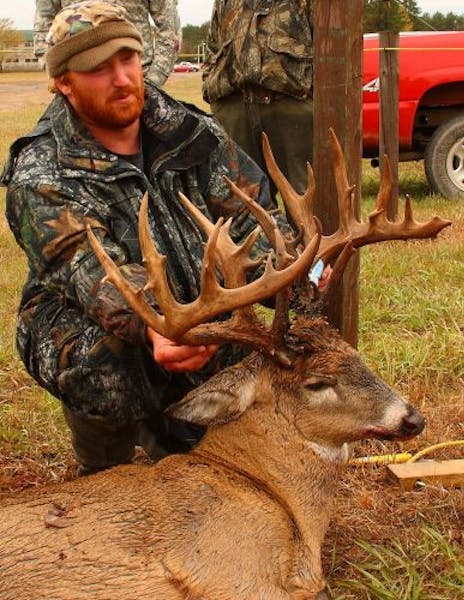You never know what experience or person might influence your course in life.
For Jane West, spending time with her grandfather at his farm in northern Minnesota helped spark a lifelong love affair with wildlife. Ed Noll was an avid hunter and angler.
"I used to shadow him when I was a girl," said West, 54, of Richfield, regional migratory bird chief for the U.S. Fish and Wildlife Service. "We would sit in the afternoons and he'd point out different birds and trees.
"I remember the first time I got to go hunting with him; it was just the two of us."
She was around 12 and she toted his Winchester Model 12 shotgun, a 12-gauge. "It had a little kick," she said with a chuckle. The first duck she shot was a blue-winged teal.
That Ed Noll took his granddaughter hunting and taught her about the outdoors was somewhat unusual in the 1960s. A lot of girls didn't get invited along.
"I consider myself extremely fortunate," said West, whose father died when she was 4.
She didn't encounter many other female hunters back then. "I don't think it ever bothered me; I don't think anyone treated me differently," she said.
West, who manages migratory birds -- nongame and game -- in the eight-state Midwest region, became hooked on hunting. She hunts upland birds, including ruffed grouse and pheasants, as well as waterfowl. She recently returned with her husband, Charles Starner, from a waterfowl hunt in Saskatchewan, and will be heading out soon to North Dakota to hunt. (They fished in the Arctic last year, and still get back to northern Minnesota to fish, too.) She and her husband have two American water spaniels and a wirehaired pointing griffon, which they train to hunt and compete in dog tests.
As with many bird hunters, the interaction with her dogs makes the outings special.
"I love watching them work," she said. Ché, her 12-year-old water spaniel, has four titles.
"We go all over for those tests," she said. "It's a lot of fun and a good excuse to get outside."
The migratory bird job with the Fish and Wildlife Service used to be primarily held by males, too, just as males dominated hunting blinds. Now, of eight regional migratory bird chiefs, three, including West, are women.
"I don't think [your gender] matters," she said. "Hopefully we're picking the best qualified for the jobs ... people who are passionate."
That fits West.
"I've been passionate about birds since I was a little kid. It could be the thrill of feeding them in the winter, to going out hunting, to doing bird surveys, to working with eagles."
Roundabout journey
West grew up in the Twin Cities and studied wildlife at the University of Minnesota, then earned a graduate degree in ornithology at Washington State. Among her early jobs: Reintroducing peregrine falcons to the Mississippi River area of Wisconsin, and reintroducing Canada geese to North Dakota. That seems strange now, given the high populations of honkers in Minnesota and the Dakotas.
"People love that," she said. "They always tease me: 'Now we know who to blame.'"
Later, she worked for the U.S. Forest Service in Minnesota and then joined the Peace Corps and went to El Salvador as a raptor ornithologist, a job that ended when civil war broke out. But for the past eight years, she's journeyed back to El Salvador for three weeks to work as a volunteer on an owl research project.
She also worked for the Forest Service in Alaska, where she met her husband. She's been with the U.S. Fish and Wildlife Service 15 years, the past two as migratory bird chief.
Of her varied career path, she said: "So far, it's been absolutely wonderful."
The issues facing wildlife managers and waterfowl hunters today are many, including loss of habitat, climate change and a declining number of hunters. The latter means fewer duck stamps and licenses sold -- and thus fewer dollars for wildlife. "It's very much a concern," West said.
And, despite people such as West, fewer of those managing the nation's natural resources have hunting backgrounds these days. About 50 percent of college students graduating with a wildlife degree never have hunted. Next month, West will take her hunting background and experiences with her grandfather to Illinois to partake in a three-day program introducing wildlife students to hunting. The intent is not to recruit hunters, but to help students understand hunting and hunters' roles in conservation.
It's for people who didn't have a parent or grandparent to take them hunting when they were kids.
"They will be the policy makers, the future leaders on wildlife and waterfowl," West said. "It's important for them to understand varying perspectives. Hopefully, it will make a difference."
It did for her.
Doug Smith • dsmith@startribune.com
